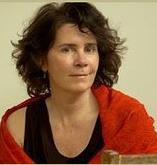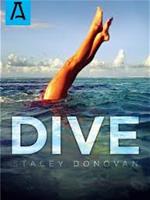 The YA novel Dive was originally released in traditional print book form in 1994. In the years since, many new books have come and gone and Stacey Donovan has written, ghost written, or consulted on dozens of books. Dive may have been relegated to history but for the encouragement of her literary agent to look into e-publishing. In September, Open Road Media released Dive as an e-book and now Donovan’s novel is anew.
The YA novel Dive was originally released in traditional print book form in 1994. In the years since, many new books have come and gone and Stacey Donovan has written, ghost written, or consulted on dozens of books. Dive may have been relegated to history but for the encouragement of her literary agent to look into e-publishing. In September, Open Road Media released Dive as an e-book and now Donovan’s novel is anew.
Dive was published about 20 years ago. What was your reaction to its rerelease as an e-book?
Dive got another opportunity to be in the world because someone loved it. My literary agent nudged me to contact Open Road Media because she said the book was in her top 10 forever. I said to myself there's nothing to lose. Most of my life, my writing, fiction, poetry, screenplays, has been rejected—I've been sending out stuff since I was a kid. Rejection is part of being a writer, of being an artist, of living in this world, I think. It was a shock that Friday morning when I received an e-mail that Open Road would like to publish the book. So I will tell you: I sprang up from the desk, and I danced!
How do you believe Dive is still relevant now?
My hope is that Dive will always be relevant because human beings will always be searching for meaning in life. We will always experience unexpected occurrences, like who ran your dog over, why your best friend is suddenly not speaking to you, what is happening with your father who is now in the hospital, what to do when someone you immediately love walks into the room, because that's what life is. This is what happens with V (the main character of Dive).
There is a lot of discussion around the #weneeddiversebooks movement. How do you think LGBT topics are addressed?
 We know that some young people take their own lives because they cannot imagine a world where they will be embraced. Sexuality is not simply girl meets boy or boy meets girl. We're in the 21st century now, an awareness and discussion of gender identity is, thankfully, part of it. Still, to be "different" in any way is a challenge. Yes, we need diverse books now, and of course we need to be apprised of or reminded of the many glorious books/plays/songs/operas/paintings/sculptures—so many more arts to mention—that voice to the world that the expectation of being "normal" is for those who think themselves normal, NOT for the rest of us.
We know that some young people take their own lives because they cannot imagine a world where they will be embraced. Sexuality is not simply girl meets boy or boy meets girl. We're in the 21st century now, an awareness and discussion of gender identity is, thankfully, part of it. Still, to be "different" in any way is a challenge. Yes, we need diverse books now, and of course we need to be apprised of or reminded of the many glorious books/plays/songs/operas/paintings/sculptures—so many more arts to mention—that voice to the world that the expectation of being "normal" is for those who think themselves normal, NOT for the rest of us.
From where did you draw such a deep character and the complexity of the challenges she faced?
Dive was my first novel. It's in the "write what you know" category.
Why would this be a good book to use in the classroom?
There are many "firsts" in Dive, experiences that many people undergo. I have a hunch that most of us know what it is like to feel alone at times. There's the hit-and-run with V’s little dog, her father becoming ill with a fatal disease, the escalation of her mother's drinking, her changing relationships with her siblings. Then there's V's falling in love and it happens to be with a girl and not a boy. Something a lot of readers and reviewers have not mentioned that is so interesting to me is that V's best friend abandons her without a word as to why. To lose a close friend, for whatever reason, is so challenging, so crushing; to not know what is happening because it has not been said aloud; this might be the hardest thing V faces. We find out why in the story.
April Hall is editor of Literacy Daily. A journalist for about 20 years, she has specialized in education, writing and editing for newspapers, websites, and magazines.